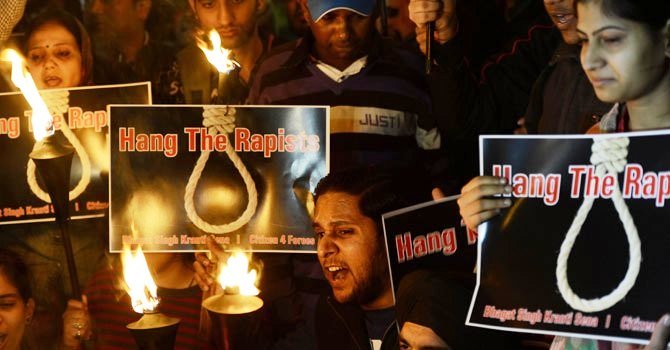
However, not everyone is happy with how this law has been rushed into existence and how it advocates capital punishment at a time when most countries around the world are moving away from the death penalty. People fear that public sentiment was the driving force behind this law and that may set a precedent again. Indian penal law rarely exercises the death penalty; it executed its first prisoner in eight years last year, the surviving gunman from the 2008 Mumbai attack. Critics of this law argue that the government refused to recognise marital rape as a crime and that armed forces were omitted from being held accountable in this law. India’s law minister was quoted by reporters as saying that his government was motivated to take these steps so as to make women feel safer in the country. He should know that laws alone cannot and do not act as deterrents. This is especially if army officers, in Indian Kashmir for example, who have been accused by a leading independent Indian human rights organisation of committing human rights abuses including rape, are exempt from being tried under this law. Gender-based sensitivity must begin at home and at the primary level in schools. It must be evident in the media, among the police and the magistrates. Only then can women begin to feel a modicum of safety in society.
Published in The Express Tribune, February 11th, 2013.
COMMENTS (2)
Comments are moderated and generally will be posted if they are on-topic and not abusive.
For more information, please see our Comments FAQ
1731570357-0/elon-musk-(1)1731570357-0-405x300.webp)
-(1)1717678110-0/Kendrick-(1)-(1)1717678110-0-165x106.webp)






1732445375-0/Untitled-design-(9)1732445375-0-270x192.webp)








The biggest bane of sub-continent is not LAW, but law ENFORCEMENT. Both the police/prosecutors and Judiciary are either incompetent or slow. Judges in India are known to make insane comments as part of their judgements. Recently, in Suryanelli rape case, Supreme Court overruled High court, which had acquitted 35 people who raped a minor girl.
The retired judge who had acquited those folks, gave a justification saying it was a case of Child Prostitution, not rape. As if, child prostitution is any less of a crime than rape! In fact, across the world child prostitution is a bigger crime than rape, and doesn't command 'acquittal'!
Unless the patriarchal attitude of the society changes women, constituting 50% of our population, will continue to suffer. What they need is equality in every sphere of life, except of course the natural mandate given to them to bear children.
If religions/customs come in the way of such empowerment, then such customs should be made illegal by law (just as other social evils were made illegal).
Optimal solution has to be within the range of feasible solutions. If marital rape had been introduced, the bill would never have been passed and hence even the current reforms would have no hope of becoming a law. Maybe that aspect can be introduced at a later time. After all reform is iterative and is not a one shot affair.
Also it is true of course that laws alone do not serve the purpose of making women safer. However if the laws are implemented correctly, at the very least it can bring some closure to the victims and over a period of time even reduce frequency of the crime through a deterrent effect. So while complacense is misplaced by passing the law, those who argue that law should not be passed until the society is reformed completely also miss the point. The debate generated by the event and also by the law are triggers for social reform.